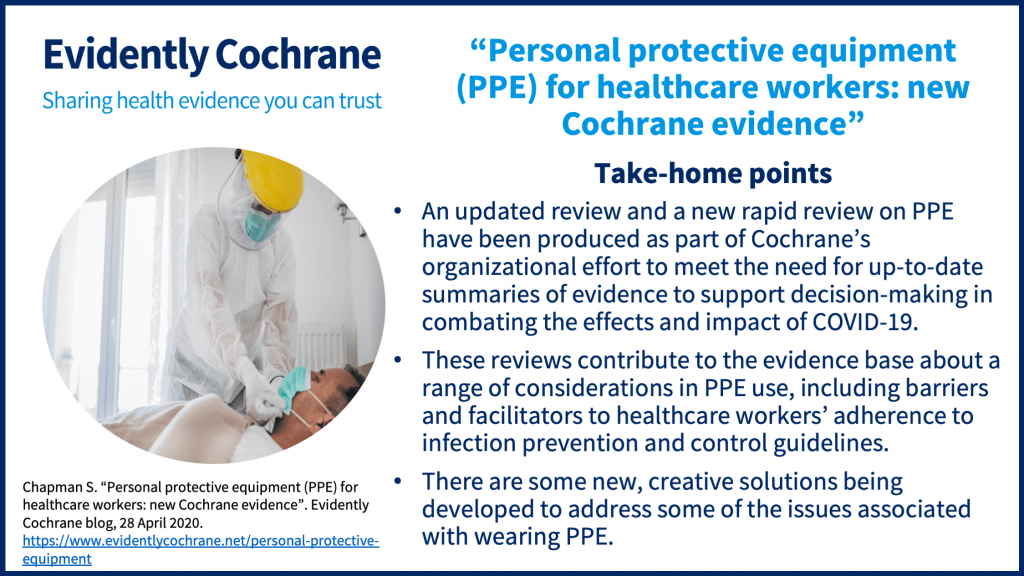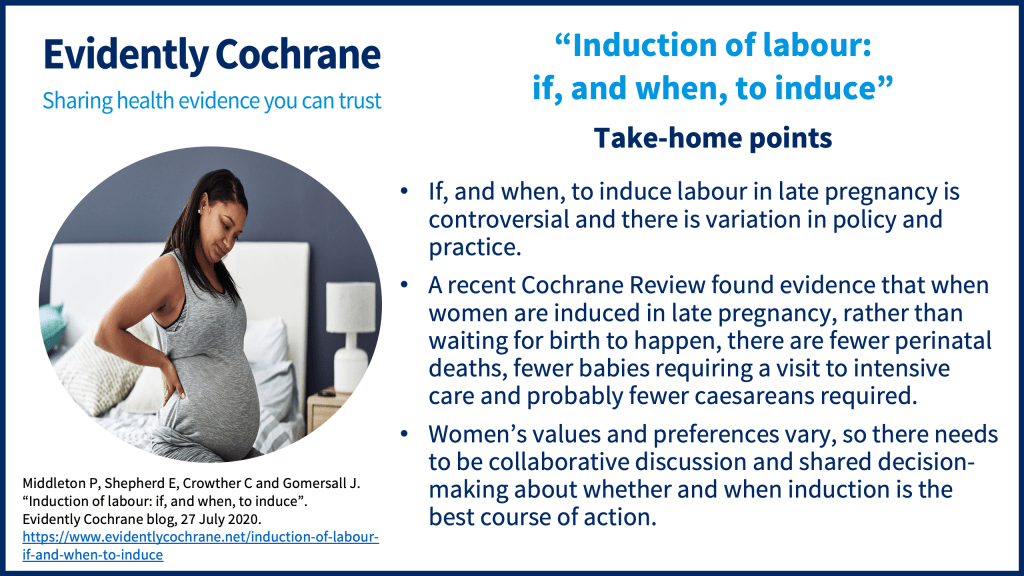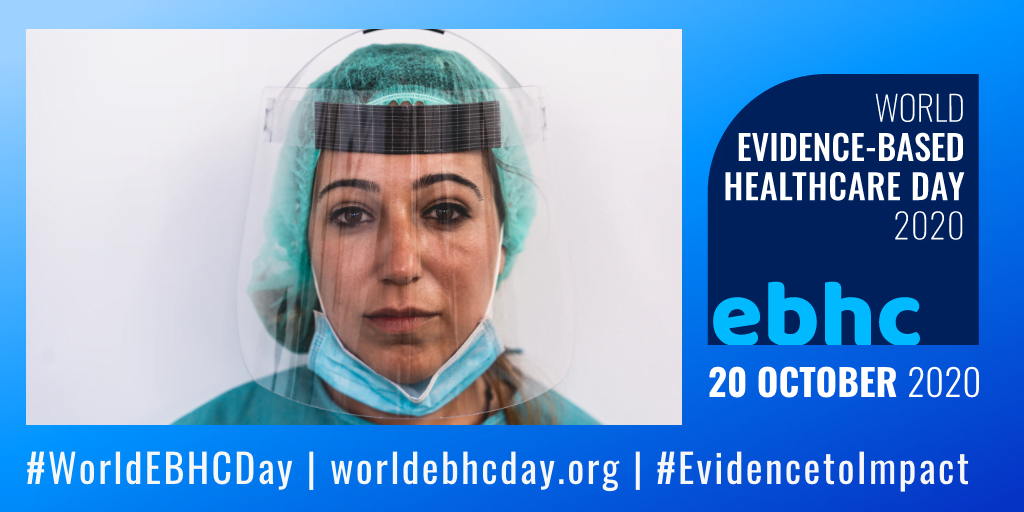The latest evidence and resources for midwives and clinical support staff. You can either scroll through this page or click on any of the links below to jump to the relevant section.
Please note, unlike the rest of our blogs, our ‘Evidence for Maternity Care: new evidence and resources’ blogs will not be updated.
COVID-19
Cochrane is producing reviews and resources for the COVID-19 pandemic. We have blogged about many of them and this blog Cochrane evidence on COVID-19: a round-up brings together a large collection of evidence and resources, starting from when this evidence was first being produced in spring 2020. Like the reviews themselves, all our blogs are updated to reflect new evidence.
You may be interested in our blog Personal protective equipment (PPE) for healthcare workers: new Cochrane evidence which discusses the evidence from two Cochrane Reviews and some innovative ideas.

Could antimicrobial mouthwashes and nasal sprays offer protection to healthcare workers, and also patients? Three Cochrane Reviews looked for evidence on this and were published in September 2020. It is disappointing that no completed studies were found, but there are studies underway and these will be considered for future updates of the reviews.
Cochrane Special Collections
Cochrane Special Collections assemble Cochrane Reviews on important topics for the prevention and treatment of COVID-19. They are developed with experts from our global Cochrane network. They are based on World Health Organization interim guidance, and continuously updated.
You can find Coronavirus (COVID-19) Special Collections here.
Cochrane Clinical Answers
Cochrane Clinical Answers (CCAs) provide a readable, digestible, clinically-focused entry point to rigorous research from Cochrane Reviews. They are designed to be actionable and to inform point-of-care decision-making. Each CCA contains a clinical question, a short answer, and data for the outcomes from the Cochrane Review deemed most relevant to practising healthcare professionals. The evidence is displayed in a user-friendly tabulated format that includes narratives, data, and links to graphics.
You can find Cochrane Clinical Answers related to COVID-19 here.
Antenatal care
Non-severe hypertension in pregnancy
The World Health Organization (WHO) has released recommendations on drug treatment for non-severe hypertension in pregnancy. Five Cochrane Reviews have contributed to these. You can read more about this from Cochrane in this item Five Cochrane Pregnancy and Childbirth reviews inform WHO recommendations on drug treatment for non-severe hypertension in pregnancy.
Gestational diabetes
A Cochrane Clinical Answer: Which interventions prevent pregnant women from developing gestational diabetes?
What matters to women in antenatal care?
A Cochrane Clinical Answer: What aspects of antenatal care are important to women, and which organizational factors impact their use of those services?
Preventing urinary incontinence
A Cochrane Clinical Answer: In pregnant women, does antenatal pelvic floor muscle training help to prevent urinary incontinence?
Labour and birth
Induction of labour
Induction of labour: if, and when, to induce is a blog written for pregnant women and those supporting them. Associate Professor Philippa Middleton and co-authors discuss their recently updated Cochrane Review looking at the effects for women and their babies of inducing labour towards the end of pregnancy.

Skin preparation for women undergoing Caesarean section
A Cochrane Clinical Answer: For women undergoing caesarean section, how does chlorhexidine compare with povidone‐iodine for skin preparation?
Current opportunities
Become a Stillbirth Spokesperson
Coming up…
The first World Evidence Based Healthcare Day will take place on 20 October 2020. This is an initiative launched by Cochrane and six other leaders in the field, to create awareness of the need for better evidence to inform healthcare policy, practice and decision making in order to improve health outcomes globally.
You can find information and resources on the World Evidence Based Healthcare Day website and look out for content on social media #WorldEBHCDay #EvidencetoImpact.

The next collection of evidence will be published here in January 2021. We may have new blogs and blogshots on individual reviews meanwhile. You can find all our blogs relevant to maternity care here and blogshots here.
Join in the conversation on Twitter with @CochraneUK @CochranePCG or leave a comment on the blog. Please note, we will not publish comments that link to commercial sites or appear to endorse commercial products. We welcome diverse views and encourage discussion but ask that comments are respectful and reserve the right to not publish comments we consider offensive.


